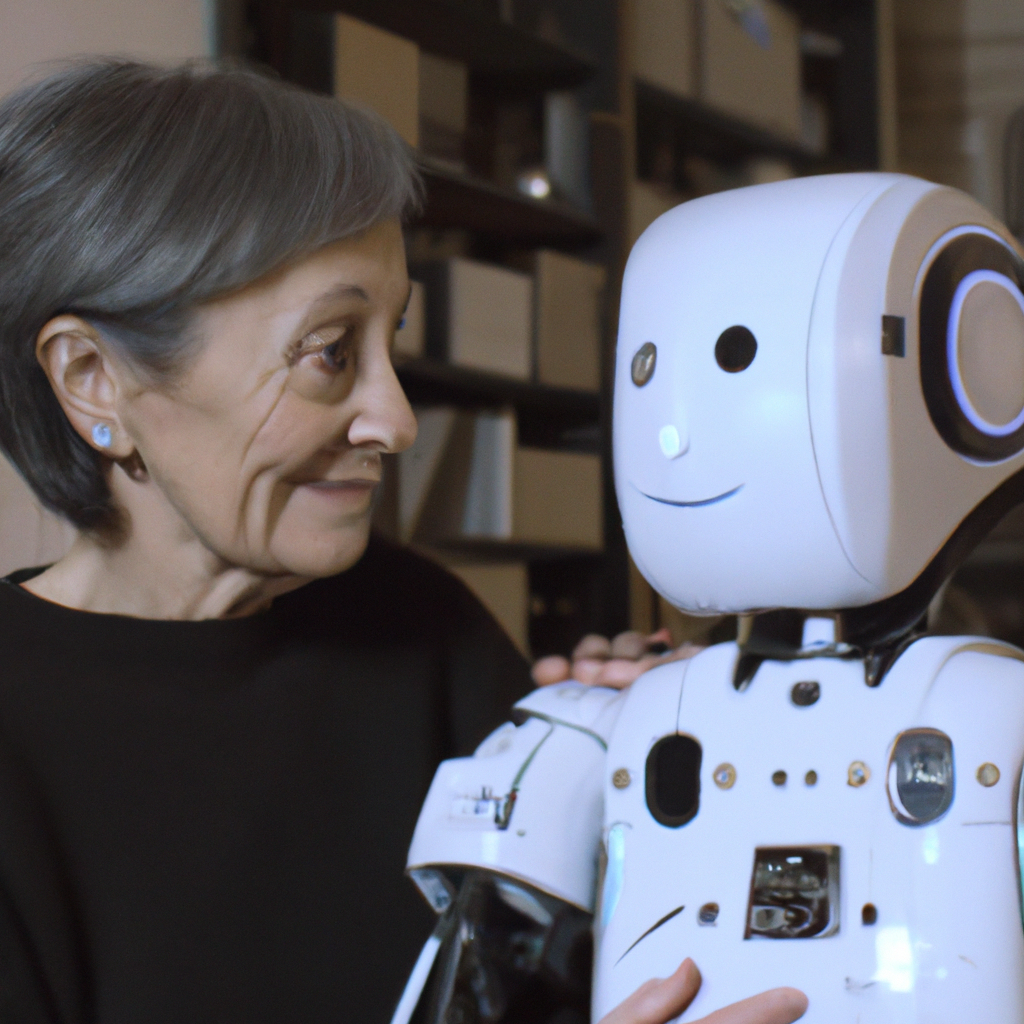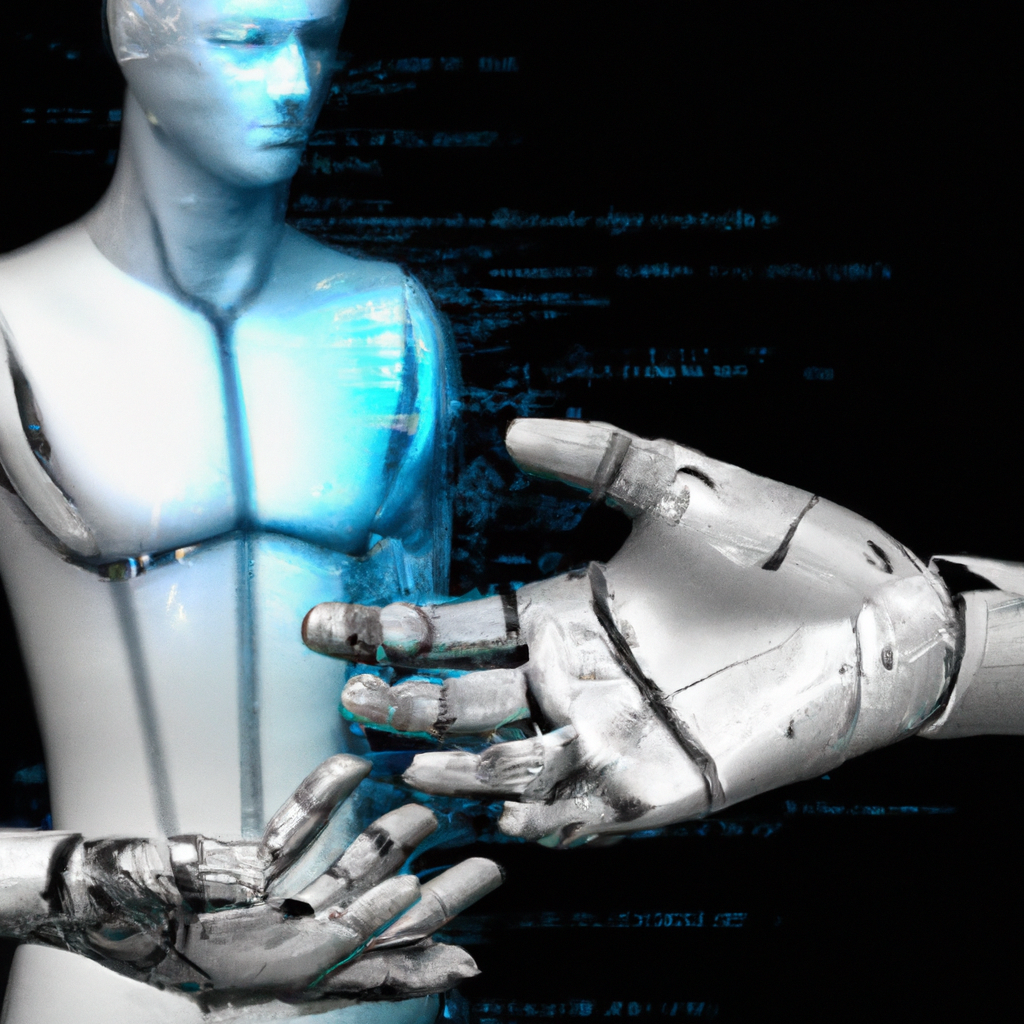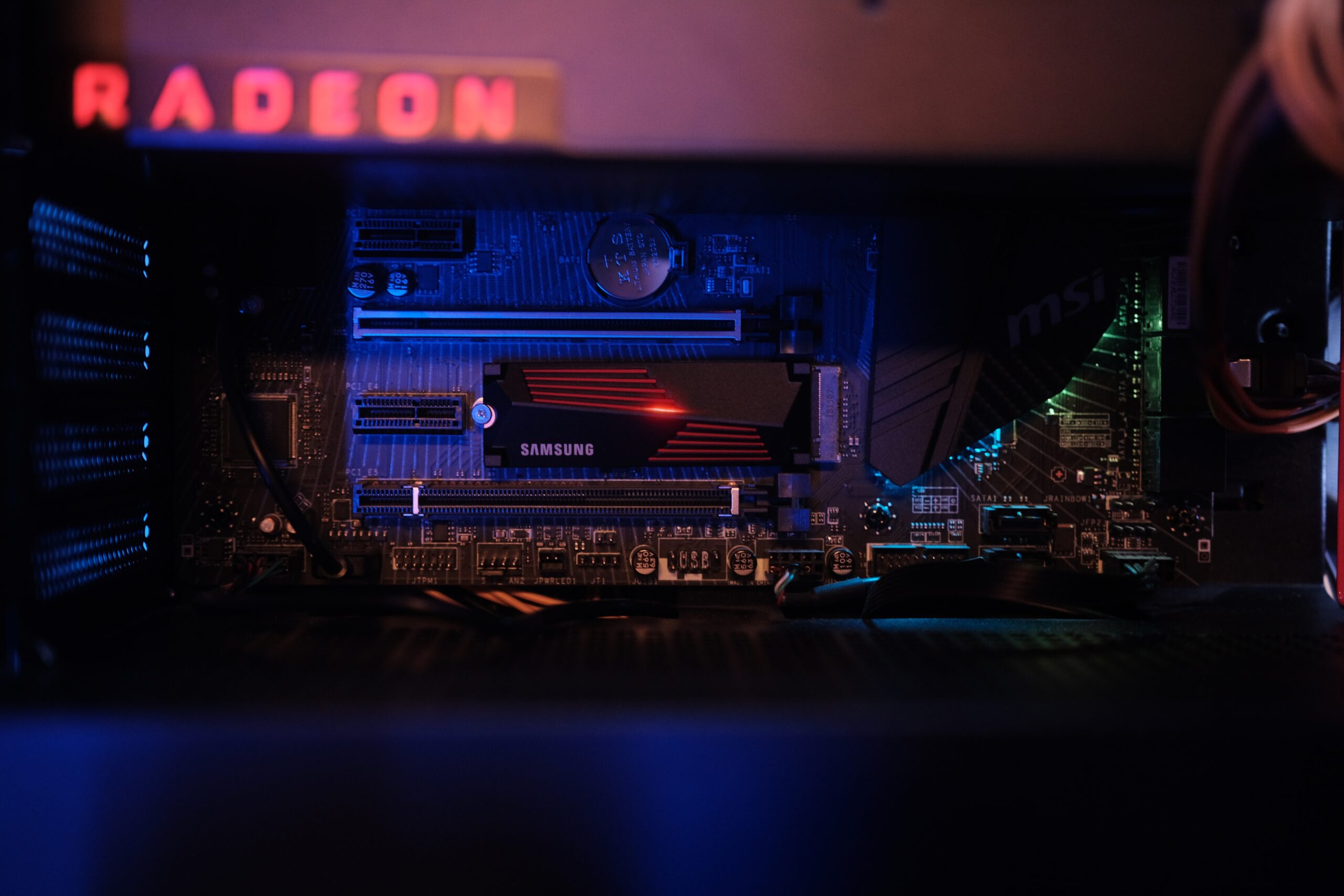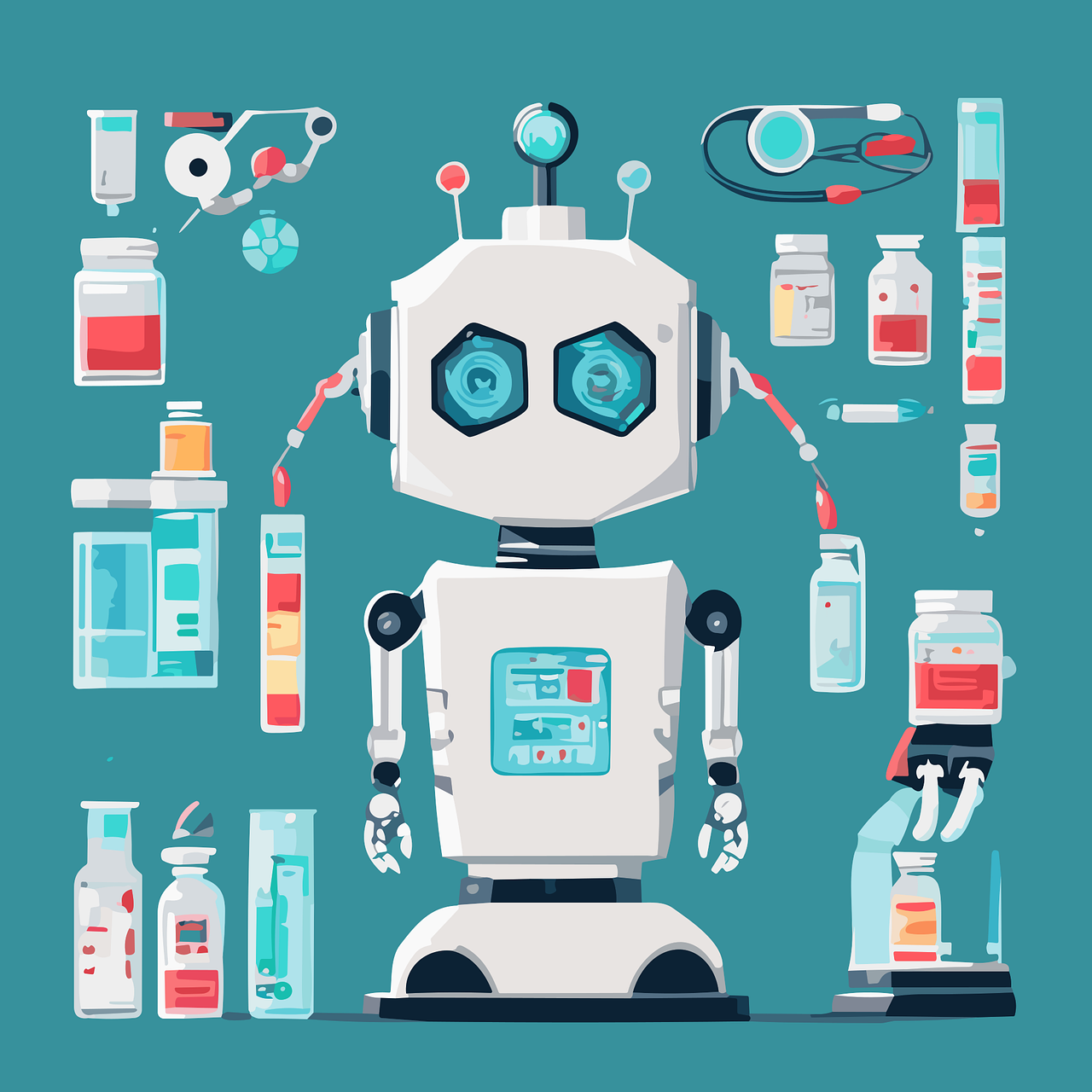Imagine a world where robotic assistants seamlessly integrate into our daily lives, transforming the way we navigate caregiving and companionship. From helping elderly individuals with everyday tasks to becoming beloved companions for lonely individuals, these robots are revolutionizing the way we enhance the quality of life. In this article, we will discover the incredible potential of robotic assistants in various facets of our everyday lives and explore the positive impacts they bring to our society. So, sit back, relax, and let’s embark on a journey into the world of robotic assistants.

The Rise of Robotic Assistants
In recent years, there has been a remarkable advancement in robotic technology, leading to the rise of robotic assistants. These sophisticated machines have the ability to perform a wide range of tasks and have become increasingly prevalent in various sectors of society. From healthcare to home care, education to the workplace, and even in retail and hospitality, robotic assistants have revolutionized the way we live and work. Their increased demand and applications in everyday life are a testament to their immense potential and the impact they can have on improving our quality of life.
Robotic Assistants in Healthcare
One of the most significant areas where robotic assistants have made a profound impact is healthcare. These intelligent machines have proven to be invaluable in supporting healthcare professionals and enhancing patient care. Robotic assistants can perform a range of tasks, such as retrieving medical supplies, collecting vital signs, and disinfecting hospital rooms. By taking over repetitive and time-consuming tasks, they enable healthcare workers to focus on more critical aspects of their job, resulting in improved efficiency and patient outcomes.
Moreover, robotic assistants also play a crucial role in promoting independence and mobility for patients. They can assist individuals with limited mobility in their daily activities, such as getting out of bed, moving around, and even performing exercises. By providing physical support and guidance, these robotic companions enhance the quality of life for patients and give them a sense of autonomy that may have otherwise been unattainable.
Robotic Assistants in Home Care
In addition to healthcare settings, robotic assistants are increasingly being utilized in home care. These machines are designed to assist individuals with daily tasks, provide companionship, and enhance safety and security within the home environment. For those who may have difficulty performing household chores, robotic assistants can lend a helping hand. They can assist with tasks such as cleaning, cooking, and even laundry, relieving individuals of the burden of these mundane and time-consuming activities.
However, the benefits of robotic assistants in home care extend beyond practical assistance. These machines also offer companionship and emotional support to individuals who may experience feelings of loneliness or isolation. With their ability to engage in conversation, recognize emotions, and provide comfort, robotic companions can significantly improve mental well-being and enhance overall happiness and fulfillment.
Robotic Assistants for the Elderly
As the global population continues to age, the need for support and care for the elderly becomes increasingly crucial. Robotic assistants have emerged as a solution to address the challenges faced by the aging population. These machines assist in monitoring health and medication, ensuring that individuals adhere to their medical regimens and receive timely reminders for appointments.
Additionally, robotic companions can help reduce social isolation among the elderly. By engaging in conversation, playing games, and even providing entertainment, these machines offer a source of companionship and interaction that may be lacking in their daily lives. This not only improves their mental well-being but also helps combat feelings of loneliness and alienation.

Robotic Assistants for People with Disabilities
For individuals with disabilities, the accessibility and independence provided by robotic assistants are invaluable. These machines have the ability to assist with mobility, communication, and various daily tasks, empowering individuals and enhancing their quality of life. Robotic companions can help individuals with limited mobility move more freely, navigate their environment, and perform activities that would otherwise be challenging.
Furthermore, these machines can assist with communication, allowing individuals who have difficulty speaking or hearing to engage more effectively with others. Through voice recognition and communication assistance technology, robotic companions bridge the gap and ensure that no one is left unheard or disconnected.
Robotic Assistants in Education
The integration of robotic assistants in education has opened up new possibilities for enhancing learning experiences. These machines can support teachers in facilitating personalized education and catering to the unique needs of each student. With their ability to adapt and customize lessons, robotic assistants can help students grasp complex concepts, reinforce learning, and provide additional support as needed.
Moreover, robotic companions are particularly beneficial for students with special needs. These machines offer a non-judgmental and patient approach to education, catering to individual learning styles and providing personalized attention. They can assist students with tasks such as reading, writing, and organizing, ensuring that they have the necessary support to succeed academically.

Robotic Assistants in the Workplace
In the modern workplace, automation has become increasingly prevalent, and robotic assistants have become instrumental in streamlining processes and maximizing efficiency. These machines can automate repetitive and mundane tasks, allowing human workers to focus on more critical and strategic aspects of their job. By freeing up human resources, robotic assistants contribute to improved productivity and overall organizational performance.
Furthermore, these machines also contribute to enhancing workplace safety. They can handle hazardous materials, perform tasks in dangerous environments, and operate heavy machinery with precision and accuracy. Robotic assistants minimize the risks associated with human error and exposure to hazardous conditions, ensuring a safer work environment for all.
Robotic Assistance in Retail and Hospitality
Robotic assistants are revolutionizing the retail and hospitality industry, providing unparalleled customer service, inventory management, and enhancing guest experiences. These machines are designed to interact with customers, answer questions, and provide recommendations, offering a level of personalized service that was once unimaginable. With their knowledge and ability to process vast amounts of information, robotic assistants can deliver accurate and timely assistance, ensuring customer satisfaction and loyalty.
Moreover, in the realm of inventory management, robotic assistants offer unmatched efficiency and precision. They can autonomously navigate store shelves, monitor stock levels, and even perform restocking tasks. By optimizing inventory management processes, these machines contribute to improving operational efficiency and reducing costs for businesses.

Future Possibilities: Robotic Companions
As robotic technology continues to advance, the future holds exciting possibilities for the development of robotic companions. These machines are undergoing significant advancements in emotional intelligence, allowing them to recognize and respond to human emotions with empathy and understanding. Robotic companions of the future may be able to build meaningful relationships with individuals, providing companionship and support in a way that rivals human interaction.
However, alongside the potential benefits of these advancements, ethical and privacy concerns must be taken into consideration. As robotic companions become more integrated into our daily lives, questions of privacy, consent, and the boundaries of human-robot relationships arise. Society must actively address these ethical dilemmas to ensure that the integration of robotic companions is approached responsibly and with respect for individual rights and values.
The Social Impact of Robotic Assistants
The rise of robotic assistants has significant implications for society. As these machines become increasingly prevalent in various aspects of our lives, societal attitudes towards robots are changing. Where once robots were seen as mere machines, they are now being recognized as valuable companions and helpers. This shift in perception has the potential to reshape how we view and interact with technology, paving the way for a future where robots are seamlessly integrated into our daily lives.
Moreover, the economic implications of robotic assistants cannot be overlooked. These machines have the potential to create new job opportunities and transform industries, driving economic growth and innovation. However, they also raise concerns about job displacement and the need for retraining and reskilling the workforce. Society must adapt and find ways to ensure that the benefits of robotic assistants are equitably distributed and that individuals have the necessary support to navigate the changing employment landscape.
In conclusion, the rise of robotic assistants has had a transformative effect on various aspects of everyday life. From healthcare to home care, education to the workplace, and retail to hospitality, these machines have revolutionized the way we live, work, and interact with technology. Their ability to support healthcare professionals, assist with daily tasks, enhance learning experiences, and provide personalized customer service has reshaped our society and opened up new possibilities for improving our quality of life. As we continue to embrace and integrate robotic assistants into our lives, it is essential to address the ethical, privacy, and societal implications to ensure a responsible and inclusive future.













